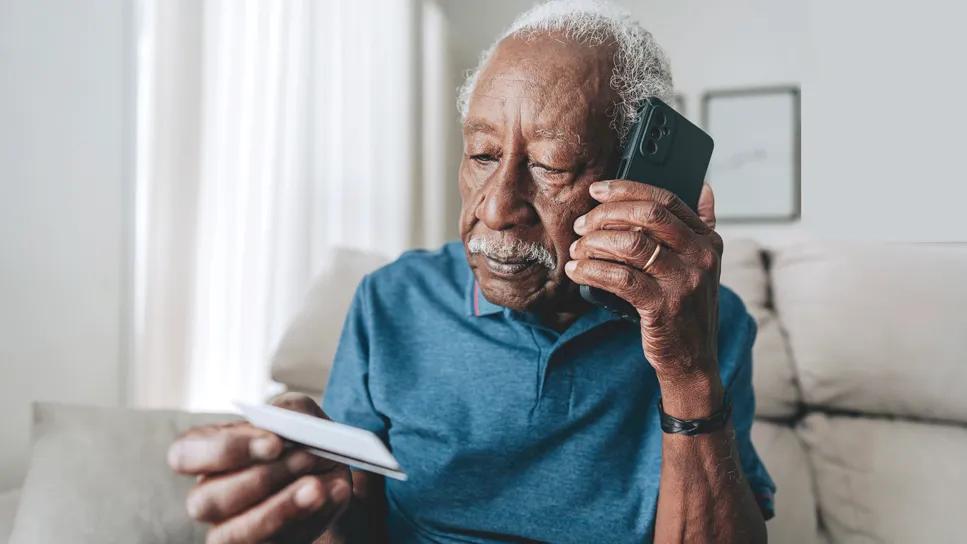Geriatric Emergency Needs Assessment

A composite screening tool helps identify urgent needs, such as delayed medical care, for older adults in disaster settings, according to a recent Cleveland Clinic study presented at the annual meeting of the American Geriatrics Society. Researchers created the tool amidst shelter-in-place orders early in the COVID-19 pandemic in 2020.
Advertisement
Cleveland Clinic is a non-profit academic medical center. Advertising on our site helps support our mission. We do not endorse non-Cleveland Clinic products or services. Policy
“We know from the medical literature that older adults are disproportionately affected by natural disasters, but we’re just beginning to understand the impact of the COVID-19 pandemic on the health of older adults,” says Kenneth Koncilja, MD, a staff physician in the Center for Geriatric Medicine at Cleveland Clinic. “Our assessment tool provides a fast and straightforward way to identify unmet needs through proactive outreach and then plan accordingly.”
In-person medical visits at Cleveland Clinic were suspended as of March 2020. Cleveland Clinic researchers developed the Geriatrics Emergency Needs Assessment (GENA), based on the Camberwell Assessment of Need for the Elderly and the Elder Abuse Suspicion Index, in order to reach vulnerable patients more likely at risk during public health emergencies.
The screening tool includes 28 questions, including questions about patient knowledge and perceptions of COVID-19, physical location and contacts, delayed or deferred medical care, social interaction and isolation, mood screening, physical health and wellbeing, medications and medical supplies, basic needs (safety, food, income) and advanced care planning.
From April through July 2020, geriatrics fellows and resident physicians and medical students in their geriatrics rotations called Medicare-eligible patients in the health system’s Accountable Care Organization to perform outreach encounters using GENA. Clinicians initiated 2162 outreach attempts and completed 1405 GENA evaluations (65% completion rates).
Advertisement
The median age of patients was 76. The calls explored food insecurity, delayed and deferred care, mental health, substance abuse disorder, firearm safety, advanced directives and cognitive impairment. Thirty-five percent reported feeling anxious or depressed, and 40% reported delaying or deferring needed medical care. A third of patients reported needing assistance with one or more activities of daily living (ADL), and 17% had medical concerns to address during the phone encounter. Residents refilled medication in 5% of encounters and even referred patients to hospice based on family and patient goals of care.
Though further research is needed to validate GENA, researchers say it allowed them to identify high rates of delayed medical care quickly and to intervene to solve the problem. “Proactive outreach is critical for our patient population, especially those who are homebound or very frail,” says Dr. Koncilja. “When suddenly all of our patients became homebound, we needed a more efficient way to accomplish the same quality of outreach, and GENA allowed us to do that.”
Dr. Koncilja also notes that the medium of outreach is important. Older adults may be less familiar with the technology needed to conduct video telehealth visits or patient portal updates. “It’s essential that we develop effective and consistent templates for telephonic outreach,” he says.
The team plans to use its experience with GENA to broaden access to care by better coordinating outreach to its more vulnerable, homebound patients and by focusing more efforts on bridging the digital divide. They are also developing stronger referral workflow with community nonprofit organizations to better channel existing resources to the most at-risk older adults.
Advertisement
Advertisement

Multidisciplinary approach helps address clinical and psychosocial challenges in geriatric care

Effective screening, advanced treatments can help preserve quality of life

Study suggests inconsistencies in the emergency department evaluation of geriatric patients

Auditory hallucinations lead to unusual diagnosis

How providers can help prevent and address this under-reported form of abuse

How providers can help older adults protect their assets and personal agency

Recognizing the subtle but destructive signs of psychological abuse in geriatric patients

Early screening — and shorter boarding times — benefit older adults